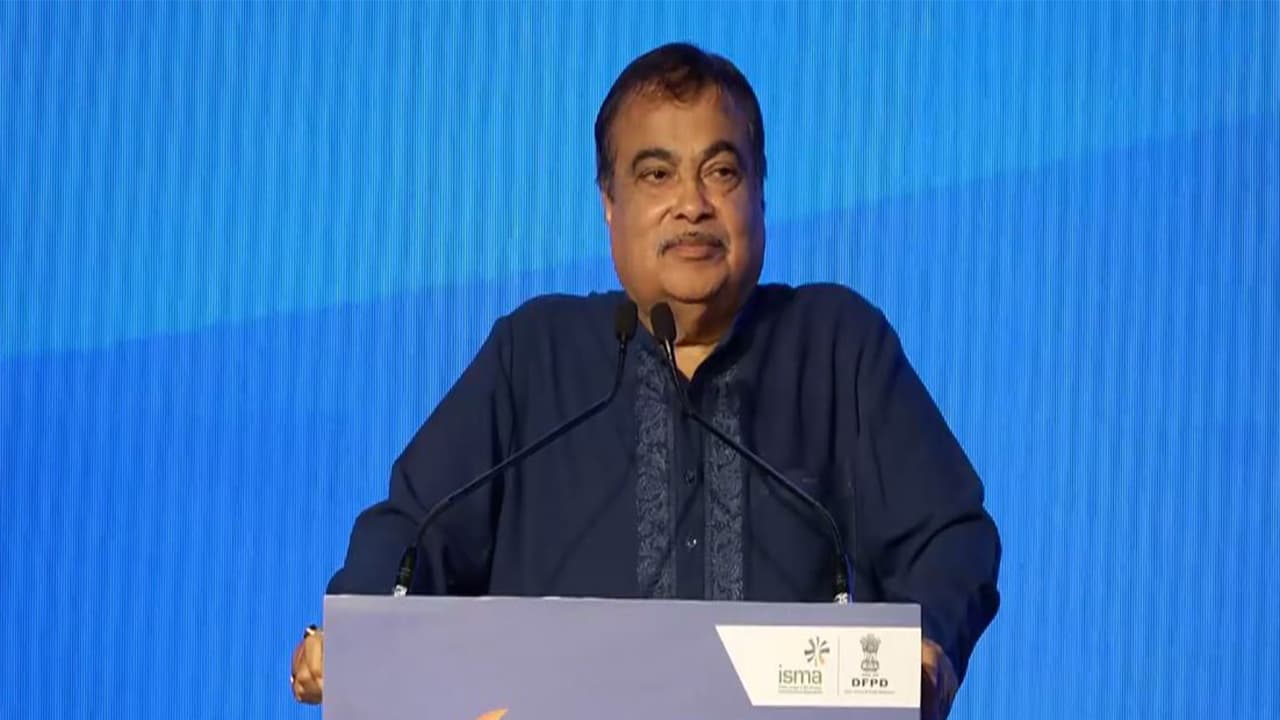Union Minister Nitin Gadkari revealed that ethanol blending with diesel failed, prompting trials with isobutanol as India pushes biofuels to cut crude oil imports.
New Delhi [India]: To stem hefty reliance on fossil fuels, the government has rolled out E20 for petrol already, but its experiments of blending 10 per cent ethanol with diesel turned out unsuccessful and now the experiments are being carried out with isobutanol, Union Minister for Road Transport and Highways, Nitin Gadkari, said on Thursday.
“Experiments were carried out to blend 10 per cent ethanol with diesel, but they turned out to be unsuccessful. Now efforts are being made to blend diesel with isobutanol, which is a derivative of ethanol,” he said while addressing the India Sugar & Bio-Energy Conference.
E20 is a government mandate in which 20 per cent ethanol–an alcohol primarily derived from sugarcane and grains like maize and rice is blended with petrol. The ratio of ethanol and petrol becomes 20:80.
Initially introduced at select fuel stations in April 2023, E20 has been gradually rolled out across India and, as of April 2025, has replaced the previously used E10 fuel, which contained 10 per cent ethanol and was the standard for most vehicles.
Gadkari said this after quashing the recent criticism on social media over the government’s ethanol blending programme was a “paid campaign” against him and not based on facts, adding that the Supreme Court had already dismissed petitions challenging the move.
The Minister has been at the centre of a debate in recent weeks after vehicle owners and service centres raised concerns that higher ethanol blends could reduce mileage and damage engines in older vehicles.
India is the second largest producer of sugar after Brazil in the world, and the third largest importer of crude oil globally. Around 85 per cent of the total domestic demand for fossil fuels is being imported into the country.
A thrust is being given on enhancing the local production of biofuel so that high dependency on crude oil could be reduced, he said, adding that biofuel is cheaper and affordable.
The government is also focusing on compressed biogas production, and this will be used in tractors, he said.
Biofuels will also be used in aviation and the fertiliser sector, he said. Such fuel is also manufactured from corn, bamboo, rice stalks, and broken juice apart from sugarcane.
The corn area increased threefold after the government started pushing for the biofuels, he added.
Minister of Consumers Prahlad Joshi said that the sugarcane and energy sectors are writing the same story of success as India is the third largest producer and consumer of ethanol.
He said that biofuels provide clean and green energy, and they have shown a remarkable transformation in the Indian landscape.
“Today, we stand at the moment of transformation where the sugarcane farmers, the sugarcane industry and the energy sectors are making a sheer glory of progress,” Joshi said in the same event.
For decades, sugar farmers have been the backbone of rural India, but often face the challenge of delayed payments and uncertain returns.
“Our government initiatives have not only ensured the timely payments to the farmers, but also created a traditional source of income for both mills and farmers,” Joshi added.
(Except for the headline, this story has not been edited by Asianet Newsable English staff and is published from a syndicated feed.)
